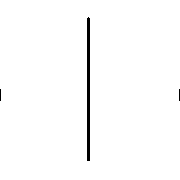|
Seventh Arrow posted:Please forgive any inaccuracies in this post, I only know a little bit about the subject. you remember Occupy? yeah. Anarcho-syndicalism and stateless communism kinda predate Marxism, and the idea generally isn't 'no government' (which is p much impossible when multiple people are working together) but a strictly non-heirarchical model of government where there is no aristocracy or political class or distinction between the rulers and the ruled. The basic idea it's (more or less) all founded on is the general strike, a mass grassroots uprising where people just get together and... stop serving their masters, and there's nothing they can loving do about it because the workers do all the actual work. Since the movement never really made it past Step 1 (and never really recovered from Lenin taking over the Russian Revolution and by extension command of 'legitimate' communism) it's generally a bit less concerned with having a fully realized political system ready to go in advance than it is with the more immediate concerns of what's hosed up about the status quo and how to break away from that so people can figure out a better way of doing things. Sometimes post-revolution government is to be accomplished through direct democracy, sometimes through delegating all policy to cooperative unions, sometimes it's just all tribal social-pressure stuff that assumes agrarian societies of hundreds of people. The throughline on all of it is that it's all chiefly concerned with making sure nobody in particular gets too powerful and starts lording it over everyone else, as a consequence has basically no point of continuity with existing societies, and no model of it that's been attempted has been remotely able to compete with authoritarian nation-states for whom a bunch of independent individuals who all have to agree on what they're doing before they can start doing it look like free dinner. A Wizard of Goatse fucked around with this message at 05:37 on Mar 10, 2016 |
|
|
|

|
| # ¿ Apr 27, 2024 08:16 |



